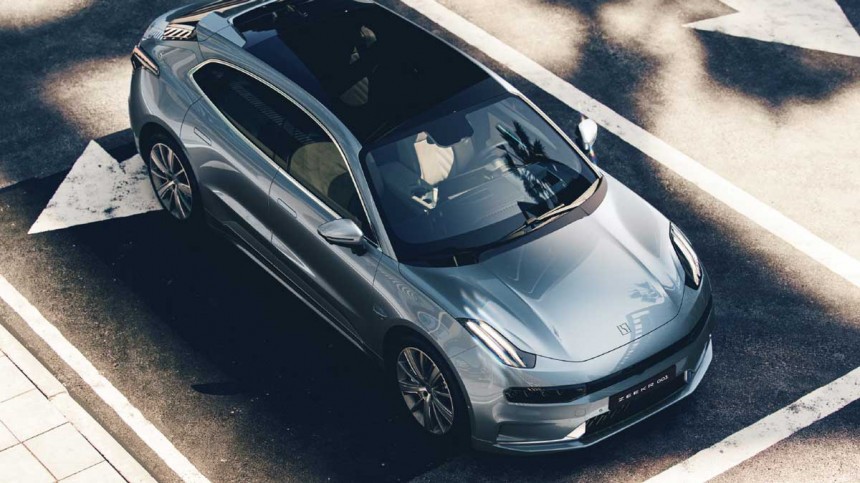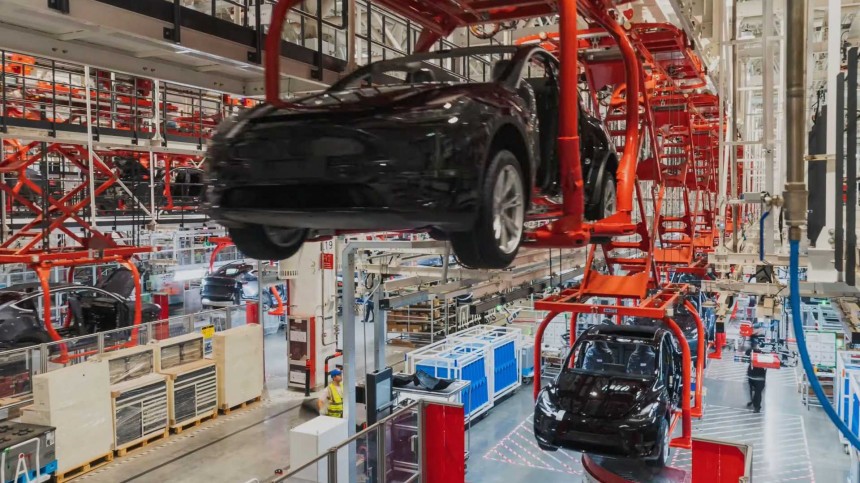When the European Commission (EC) announced it would investigate if Chinese cars are cheaper due to local government subsidies, China was quick to react. The Ministry of Commerce published a note on September 14 that urged Europe, among other things, to "conduct dialogue and consultation" before taking any measures against Chinese vehicles. The China Chamber of Commerce to the EU (CCCEU) followed the same steps. The ministry said it would "pay close attention to the EU's protectionist tendencies," which shows how complex this discussion really is.
In October 2022, Carlos Tavares told journalists at the Paris Motor Show that it was unfair for Chinese companies to sell cars in Europe by paying a 10% import tax while European carmakers had to pay 15% to 25% tariffs. That was an early sign that European automakers would not just watch a Chinese invasion without at least screaming for some reaction from their governments. If you think about it, it took a while for European regulators to move.
Fair international trade is based on similar conditions for all parties involved. If I charge you 10% for you to sell your goods in my backyard, I'd expect you to ask me the same fee if I want to sell in yours. Yet, European companies would face a major issue even if China dropped its import tax for vehicles: it has very little that Chinese customers would want to buy. On the other hand, Chinese carmakers make exactly what European politicians want customers in the Old Continent to purchase: battery electric vehicles (BEVs).
China has faced a significant pollution problem in its megalopolises after cars invaded them. Volkswagen's first factory there was established in 1985. Anyone willing to sell automobiles there knew their only chance was with local production. As no car company could entirely own their factories in China, they established joint ventures, which allowed Chinese automakers to learn from their international competitors. However, due to pollution, the Chinese government started stimulating people to buy electric cars.
International carmakers were still not that worried about carbon emissions and were too invested in making internal combustion engines (ICE). That created the perfect opportunity for local companies to develop their own vehicles. As the giant Chinese cities were getting more and more cars, local governments created incentives for BEVs to sell instead of ICE vehicles.
While anything with an engine had to pay for a license plate, electric cars could get them for free. They also had other incentives that made BEV adoption a sensible choice. With fewer vehicles burning fossil fuels, the air in these large cities became more breathable, which lowered the government's health costs. On top of that, China refines over 90% of all raw materials for batteries and electric motors. It is also a major world producer of these components, which made everything a lot easier.
An investigation is not protectionism per se. If China already sounded the alarm, either it believes the EC efforts will expose a subsidy strategy for the local BEV industry that was under the radar, or it suspects it is just a weak excuse for what is to come. As a goodwill gesture, China could reduce the import tax, sure that it would have no practical effects. European carmakers do not make any BEVs that could flood the Chinese market. Either they are already made locally, or they do not appeal to Chinese customers. That also applies to American companies, such as Tesla, GM, and Ford.
In a way, the EC is trying to fix something its own urge to turn personal transportation into something carbon-neutral led it to. European politicians were the ones closing nuclear power plants to buy Russian gas instead. They are also to blame for imposing emission limitations that could only be achieved with electric cars while European companies did not offer these products.
For a long time, these companies were bashed for avoiding the EV shift in a collective effort to preserve their investments in ICEs. However, that is not how it works. Any European automaker that was confident with its products would rush to present it before all the others to dominate the market. If none of them did that, it may be because the technology was not mature enough for that.
Carlos Tavares also warned about this last July. He said that "the technology is not ripe. Nothing is optimized" when it comes to electric cars. Toyota said the same thing in a different way until very recently. Are these guys just trying to postpone the inevitable, or are they trying to warn customers and politicians about the risks involved? We have quite a few, such as the high price of replacing a battery pack, the repercussions if these components were defective and demanded a massive recall (as GM and Hyundai already faced, respectively, with the Chevrolet Bolt EV and the Hyundai Kona Electric), the dangers with transporting them in boats, and a long etcetera.
China is aware of that and urges the European Union (EU) to "create a fair, non-discriminatory and predictable market environment for the common development of the China-EU electric vehicle industry, and jointly oppose trade protection doctrine and jointly commit to global efforts to address climate change and achieve carbon neutrality." In other words, increasing the import tax for Chinese BEVs in Europe would be an attack on the environment. The lesson is that it all depends on how you interpret the facts. The EC investigation will have to present them in a very convincing way.
Fair international trade is based on similar conditions for all parties involved. If I charge you 10% for you to sell your goods in my backyard, I'd expect you to ask me the same fee if I want to sell in yours. Yet, European companies would face a major issue even if China dropped its import tax for vehicles: it has very little that Chinese customers would want to buy. On the other hand, Chinese carmakers make exactly what European politicians want customers in the Old Continent to purchase: battery electric vehicles (BEVs).
China has faced a significant pollution problem in its megalopolises after cars invaded them. Volkswagen's first factory there was established in 1985. Anyone willing to sell automobiles there knew their only chance was with local production. As no car company could entirely own their factories in China, they established joint ventures, which allowed Chinese automakers to learn from their international competitors. However, due to pollution, the Chinese government started stimulating people to buy electric cars.
While anything with an engine had to pay for a license plate, electric cars could get them for free. They also had other incentives that made BEV adoption a sensible choice. With fewer vehicles burning fossil fuels, the air in these large cities became more breathable, which lowered the government's health costs. On top of that, China refines over 90% of all raw materials for batteries and electric motors. It is also a major world producer of these components, which made everything a lot easier.
An investigation is not protectionism per se. If China already sounded the alarm, either it believes the EC efforts will expose a subsidy strategy for the local BEV industry that was under the radar, or it suspects it is just a weak excuse for what is to come. As a goodwill gesture, China could reduce the import tax, sure that it would have no practical effects. European carmakers do not make any BEVs that could flood the Chinese market. Either they are already made locally, or they do not appeal to Chinese customers. That also applies to American companies, such as Tesla, GM, and Ford.
For a long time, these companies were bashed for avoiding the EV shift in a collective effort to preserve their investments in ICEs. However, that is not how it works. Any European automaker that was confident with its products would rush to present it before all the others to dominate the market. If none of them did that, it may be because the technology was not mature enough for that.
China is aware of that and urges the European Union (EU) to "create a fair, non-discriminatory and predictable market environment for the common development of the China-EU electric vehicle industry, and jointly oppose trade protection doctrine and jointly commit to global efforts to address climate change and achieve carbon neutrality." In other words, increasing the import tax for Chinese BEVs in Europe would be an attack on the environment. The lesson is that it all depends on how you interpret the facts. The EC investigation will have to present them in a very convincing way.








































